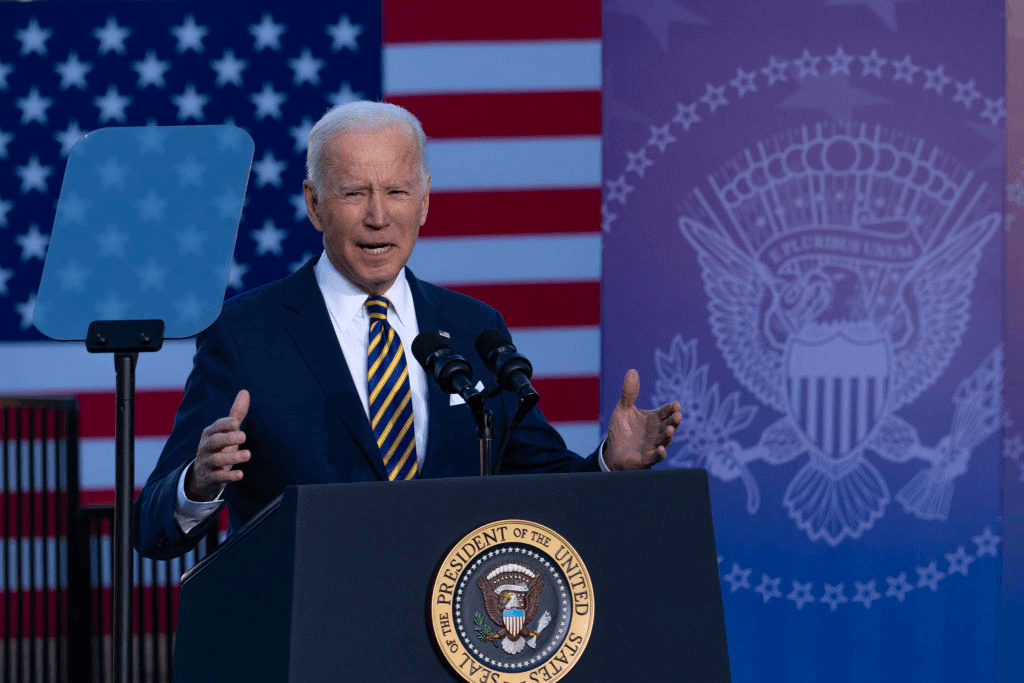History
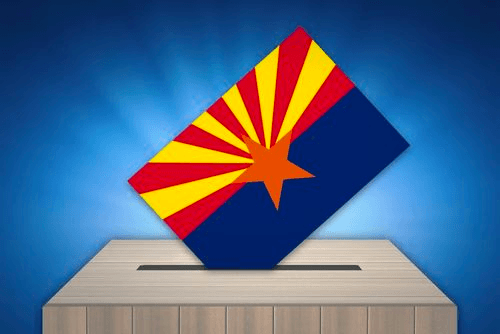
- 2021|
Brnovich v. Democratic National Committee
Brnovich v. DNC is one of the Supreme Court’s most significant — and divisive — voting rights cases in recent years.
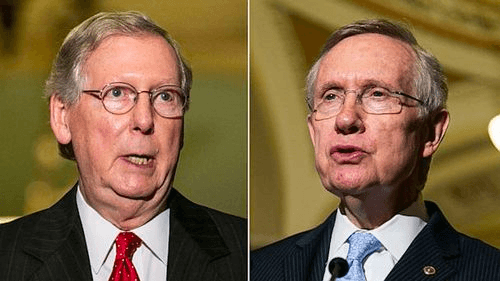
- 2013|
Nuclear Option and 2017 Filibuster Change
In recent years, the Senate has carved out exceptions to its filibuster rule, including for presidential appointments requiring Senate confirmation.
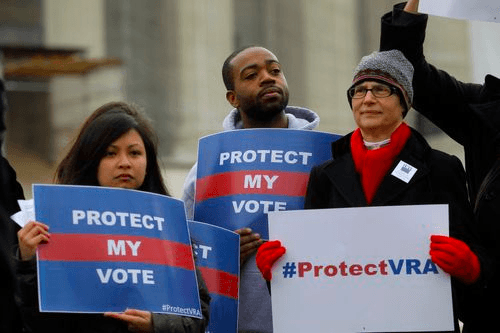
- 2013|
Shelby County v. Holder
In the 2013 case Shelby County v. Holder, the Supreme Court issued a landmark decision drastically changing the way states changed their election laws.
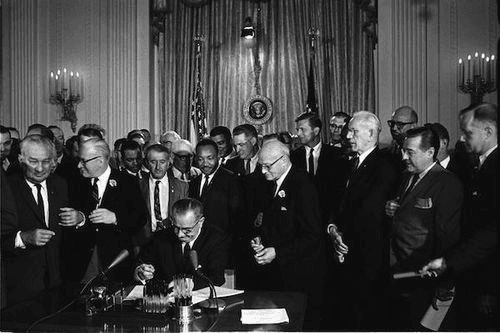
- 1965|
Voting Rights Act of 1965
In 1965, President Lyndon Johnson signed the Voting Rights Act. This legislation sought to protect millions of minority Americans from discrimination.
Introduction
In the wake of allegations of rampant voter fraud in the 2020 elections, many state legislatures across the country have changed their voting laws significantly. While Republicans claim these measures are essential to protect election integrity, Democrats have widely decried these efforts as direct attacks on the right to vote. President Biden and congressional Democrats have made federal election reform a top priority. However, this issue has taken many forms during Biden’s term, and while Democrats appear to agree on the topic’s importance, that seems to be the extent of their agreement. If and how any federal action on election law occurs remains to be seen.
The Filibuster
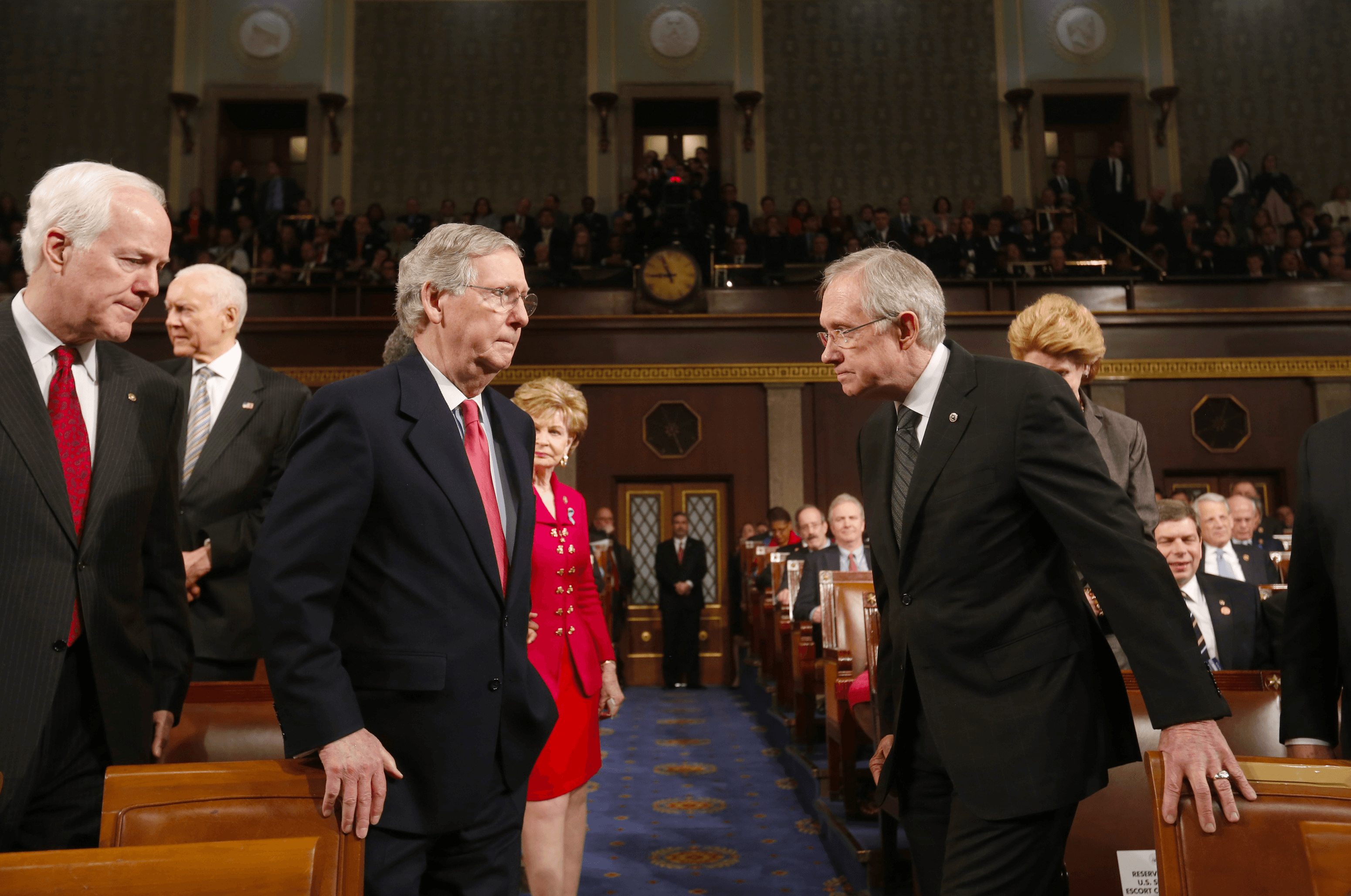
While most legislation requires only a simple majority to pass in the Senate, there is a higher threshold for ending debate. By refusing to end debate, otherwise known as filibustering, a minority of senators can prevent legislative action they oppose. This concept of unlimited debate is unique to the Senate in the American political system. However, senators rarely used the filibuster until the late 19th century, eventually prompting the body to enact a reform allowing for cloture, a motion to end debate, in 1917. The cloture motion allowed the chamber to end a debate with a two-thirds majority vote. Over the following decades, senators found the two-thirds requirement to be an often unattainable bar, and they ultimately lowered it to 60 senators in 1975. Despite common misconceptions, the Senate does not require a “talking filibuster,” which forces a senator to continue talking to hold the floor and prevent the majority from passing a bill. Today, with increasing frequency, senators in the minority implement a “virtual” or “silent filibuster,” essentially allowing them to block legislation by simply threatening to exercise unlimited debate.
For the People Act
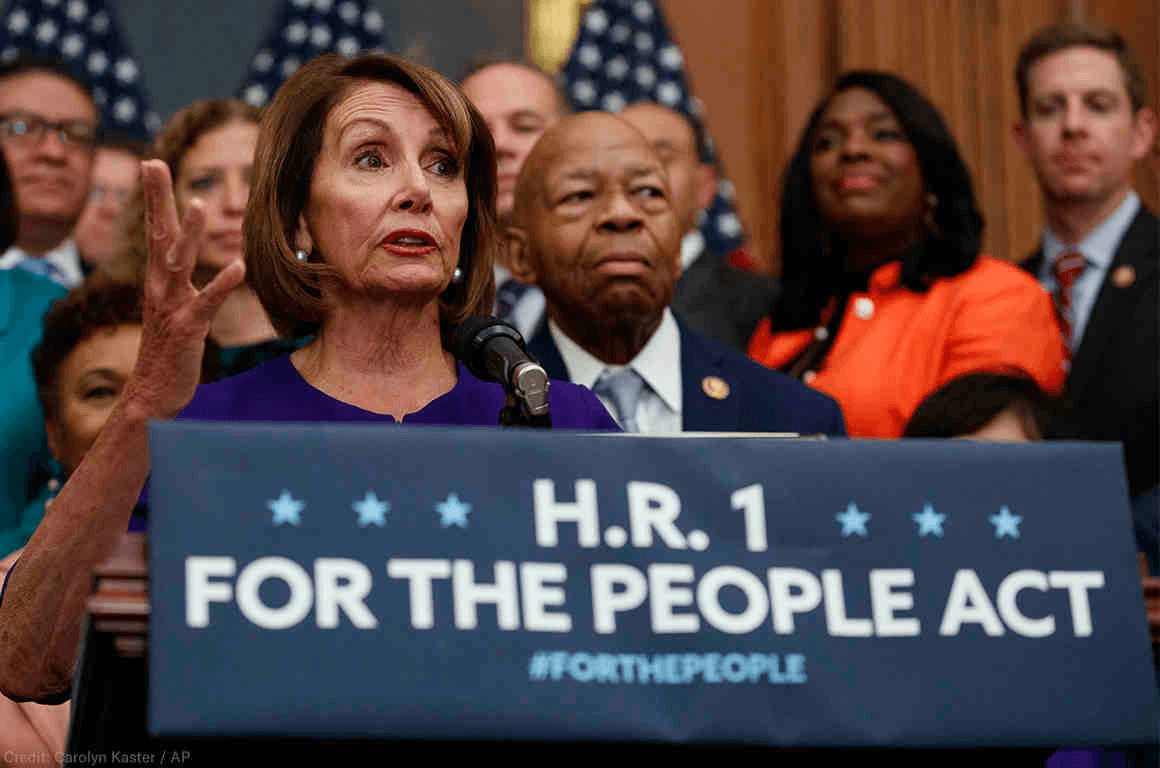
While House Democrats first introduced the For the People Act in 2019, the bill drew much more attention when they reintroduced it in January 2021 amid an intense national focus on federal and state election laws. Its sponsors argued that the bill would restore and expand voting rights for all citizens and counteract what they viewed as restrictive voter laws from Republican state legislatures. Additionally, the bill’s proponents said it would expand voter registration access, mandate independent redistricting commissions, and toughen campaign finance law, among other things. Republicans argued it was a massive federal power grab, enacting sweeping changes to a process generally controlled by states. Republicans disapproved of the bill’s ten specific provisions, including ballot harvesting, eliminating voter ID, and same-day registration. Although the House passed it in March 2021, the bill stalled in the Senate. Democrats’ hopes of enacting the For the People Act were dealt a significant blow in June 2021. Senator Joe Manchin (D-WV), whose vote is necessary for any party-line vote in the 50-50 Senate, publicly announced he would oppose it. Then in a procedural vote to open debate on the bill, all Senate Republicans opposed it, causing it to fall short of the 60 votes required to begin its consideration.
Freedom to Vote: John R. Lewis Act
However, while Manchin’s opposition to the For the People Act signaled its demise, it also spawned new voting legislation with his support. Two Democratic proposals, the Freedom to Vote Act and The John Lewis Voting Rights Advancement Act, were later combined into the Freedom to Vote: John R. Lewis Act. The Senate considered this omnibus election overhaul bill in January 2022. The Act has many similarities to the For the People Act, though it originated from a compromise authored by Senator Manchin hoping for bipartisan support. It would: create national standards for voting access, reform the redistricting process, impose federal penalties for harassing election workers, reform campaign finance law, and reinforce some provisions of the Voting Rights Act that some Supreme Court rulings have weakened (see Shelby County and Brnovich). Republicans considered the federalized changes calling for universal mail-in ballots and ballot harvesting to be ripe for fraud. Democrats call the measure essential, saying it would counteract restrictive state voting laws that disenfranchise minority voters and ensure all Americans have voting access. Most Republicans criticize the sweeping election reform bill as an attack on America’s federalist system, though Senator Lisa Murkowski (R-AK) supported the original John Lewis bill in the Senate. Ultimately, their opposition prevented Democrats from passing the legislation due to the filibuster.
Calls for Filibuster Change
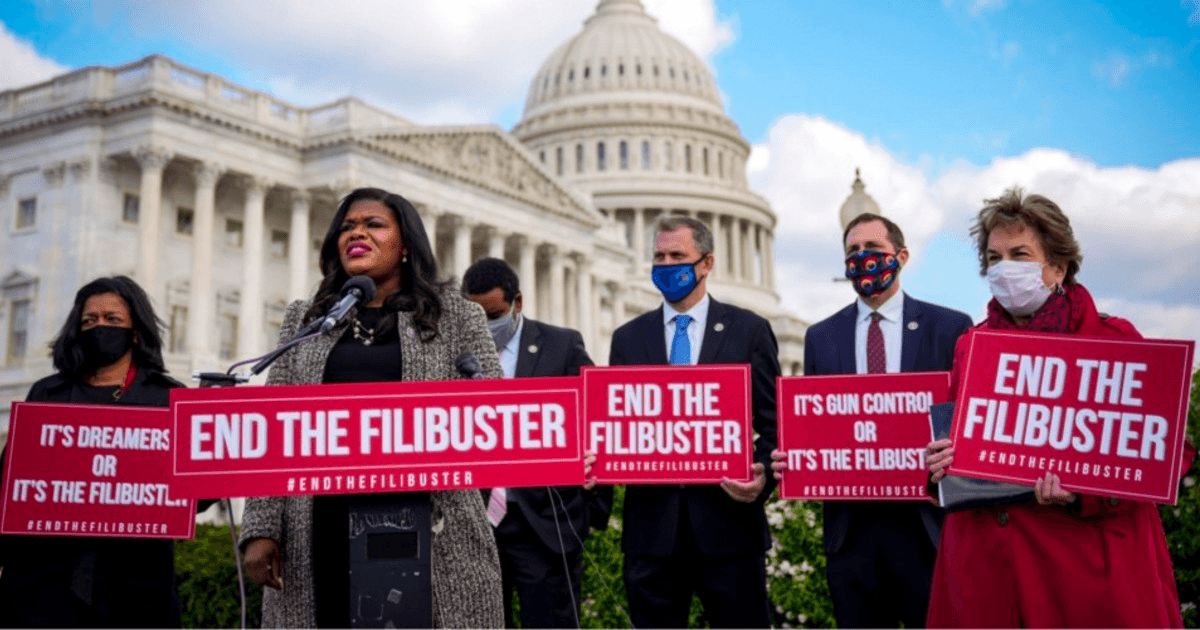
With each bill, some activists and members of Congress have pushed to reform or eliminate the filibuster. While removing the filibuster for presidential appointments has its roots in the “nuclear option” of 2013, arguments to reform or abolish the legislative filibuster remained somewhat of an outlier within the Democratic Party, even as recent as the 2020 Democratic presidential primary. But the political climate changed drastically in the early part of President Biden’s term, and changing the filibuster in some form has become a much more mainstream viewpoint among the Democratic establishment. Even President Biden, who has long promoted himself as a pragmatic institutionalist, threw his weight behind a filibuster rule change to advance the voting rights legislation. However, the 2020 Senate, split evenly along party lines, requires unanimous Democratic support for any partisan rule change. And as reforming the filibuster became a more common idea among mainstream Democrats, two Democratic senators, Senators Kyrsten Sinema (D-AZ) and Joe Manchin (D-WV), hardened their opposition to any party-line vote to change it.
Despite a very public pressure campaign on the two Senators to at least carve out an exception for voting rights legislation, both spoke out against their Party’s efforts. In early January 2022, Senate Majority Leader Chuck Schumer (D-NY) held a vote to change the rule, allowing Senate Democrats to pass the election legislation through a simple majority vote. He hoped forcing the two centrists to go on the record might entice them to change their minds. Perhaps predictably, both Senators tanked the effort, joining all Republicans to stop it. Many Democrats viewed their decision as a betrayal, and the Arizona Democratic Party censured Sinema for her vote. The move has even drummed up rumors of Democratic primary challenges to the two ahead of their potential reelection campaigns in 2024. Yet, there is no apparent shift in thinking for either Senator, leaving the proposed voting laws with no clear path forward.
Reforming the Electoral Count Act
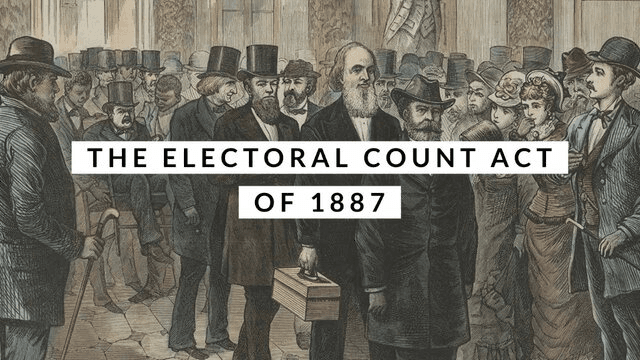
The Electoral Count Act is an 1887 law that governs how Congress counts the electoral votes after presidential elections. The Trump campaign’s post-election efforts and litigation drew intense national focus to this obscure federal law, and many criticized its apparent vagueness. In particular, former President Trump claimed that the Vice President could throw out “disputed” electoral votes. Under the law, a single member from the House and Senate can object to a state’s electors, forcing both chambers to vote on whether they are valid. Currently, lawmakers can refuse to count the electors in question through a simple majority vote of both chambers.
In February 2022, Senate Democrats unveiled a series of proposed reforms to the 1887 law. Senate Democrats’ proposal would lift the objection threshold to one-third of the House and Senate and raise the requirement to sustain an objection to three-fifths of both chambers. The framework includes a few other provisions, including limiting the reasons legislators can object to electors, strengthening against “fake electors,” and setting a strict deadline to resolve post-election disputes. Separately, a bipartisan group of senators is considering their own proposal to change the Act. As with the Democratic proposals, these senators want to raise the objection requirement and clarify the vice president’s role in the process as ceremonial. It is unclear if there is enough support for reform to overcome the filibuster, especially since former President Trump opposes these efforts.
Discussion Questions
- Do you feel federal voting rights legislation is necessary? Why or why not?
- Should Democrats split the current legislation into smaller bills in hopes of getting bipartisan support?
- Should the Senate abolish the filibuster? Explain your view.
Narratives
Left Narrative
As Republican state legislatures across the country pass restrictive election bills in the name of the lie that Democrats stole the 2020 election, Americans need federal voting rights legislation now more than ever. The Freedom to Vote: John R. Lewis Act is a landmark bill that would ensure all Americans, including historically disenfranchised groups, have adequate voting access. Senate Republicans use archaic procedural hurdles to block this crucial legislation, prioritizing politics over Americans’ voting rights. Secondly, lawmakers must amend the Electoral Count Act to ensure that former President Trump’s attempt to overthrow a legitimate election can never happen again. Congress must act quickly to ensure that the Republican attack on elections will not stand.
Right Narrative
Democrat calls for voting changes completely overhaul the U.S. election system to help Democrats fraudulently win. Below is a list of actual measures included in Democrat election bills.
- Ban state photo voter ID laws.
- Requiring states to implement same-day voter registration, giving election officials no time to verify the accuracy of the registration.
- Restricting the ability of states to verify the eligibility and qualifications of voters and removing ineligible voters.
- Require states to allow online voter registration not tied to an existing state record, such as a driver’s license, which would open up registration systems to massive voter registration fraud by cybercriminals.
- Require states to automatically register individuals to vote from state and federal databases, such as state Departments of Motor Vehicles, which would result in the registration of ineligible voters.
- Give U.S. Department of Justice bureaucrats veto authority over election changes made by state legislatures.
- Require states to restore the ability of felons to vote.
- Provide a public funding program for congressional candidates, forcing taxpayers to support candidates they would never vote for or send campaign contributions to.
- Force states to let paid political operatives, candidates, campaign staffers, and others – with a stake in the election’s outcome – pick up and handle absentee ballots (ballot harvesting).
- Implements a series of restrictions and changes to federal campaign laws that would limit political speech and turn the Federal Election Commission into a partisan law enforcement agency.
Democrats are scared of losing elections and want to legalize fraud and remove the filibuster to stay in power. In addition, they are calling anyone who opposes their bill a racist. President Biden even compared his opponents to segregationists. These unprompted comments show how desperate Democrats become when they believe they will lose.
Bipartisan Narrative
Classroom Content
Browse videos, podcasts, news and articles from around the web about this topic. All content is tagged by bias so you can find out how people are reacting across party lines.
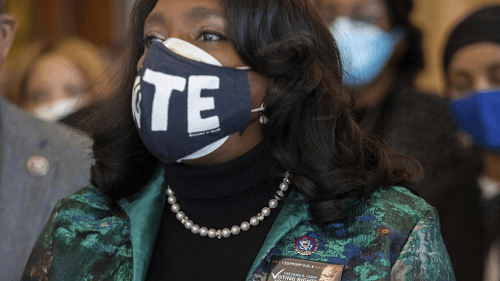
Democrats’ elections bill offered voting changes and more
- Article •
- 0/20/2022
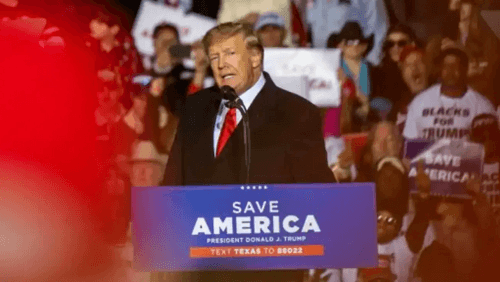
Trump: Effort to Change Election Rules Prove VP Could Change Results
- Article •
- 0/30/2022
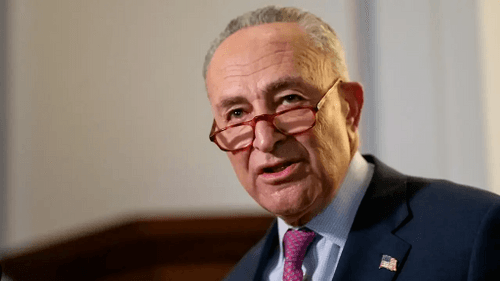
Schumer to push doomed filibuster vote after debate Tuesday on voting reforms
- Article •
- 0/17/2022

The Democrats’ Last Best Shot to Kill the Filibuster
- Article •
- 8/30/2021

The Electoral Count Mess: The Electoral Count Act of 1887 Is Unconstitutional, and Other Fun Facts (Plus a Few Random Academic Speculations) about Counting Electoral Votes
- Academic •
- 2/2/2021
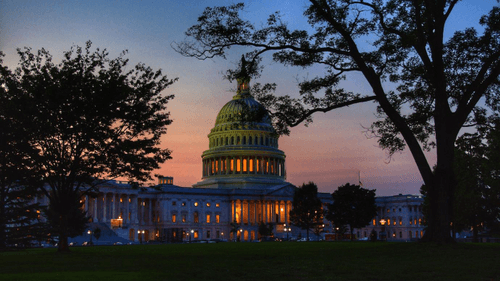
The Filibuster and Legislative Discussion
- Academic •
- 0/18/2022
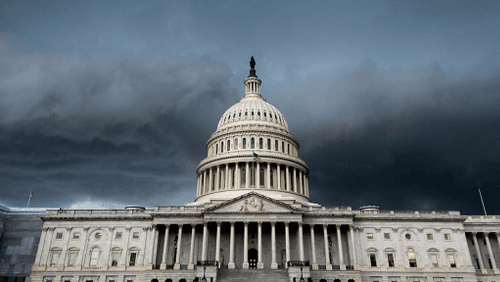
The Impact of the Filibuster on Federal Policymaking
- Other •
- 11/5/2019
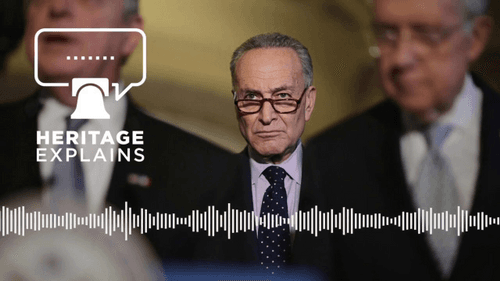
Why We MUST Save the Filibuster
- Podcast •
- 0/25/2021
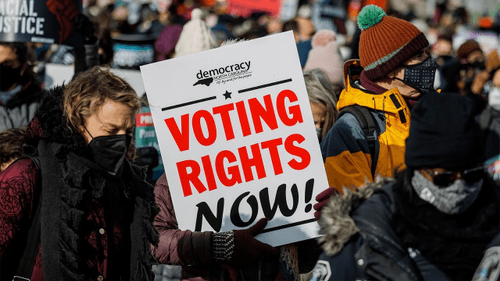
Why Democrats Keep Bringing Up Voting Rights Legislation
- Podcast •
- 0/18/2022
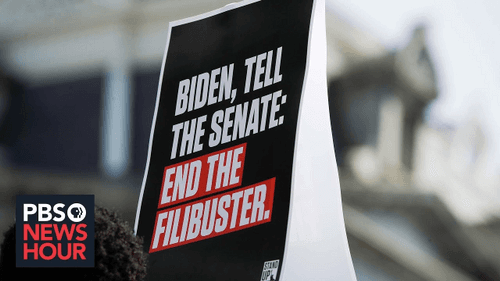
The debate over ending the filibuster, explained
- Video •
- 0/17/2022

What’s A Filibuster? | Ron’s Office Hours
- Video •
- 4/19/2017
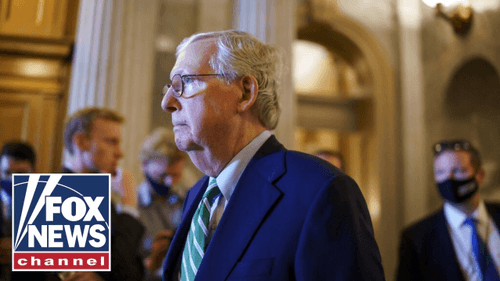
McConnell tears into Biden’s ‘unpresidential’ attacks
- Video •
- 0/12/2022
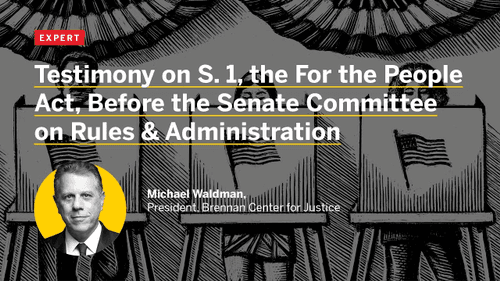
Michael Waldman Testimony on S.1, the For the People Act
- Video •
- 3/27/2021
